At Eastern Christian School, we believe that technology is a powerful tool for learning, creativity, and problem-solving. From STEAM education in elementary school to coding, robotics, and digital citizenship in middle school, and career-focused technology electives in high school, our students develop critical digital skills while integrating their faith and developing ethical responsibility into the ever-evolving world of technology.
Explore what we offer and what happens when students have the latest technology and learn from amazing teachers that provide a Christ-centered worldview.
Technology Programs by Grade Level
STEAM & Technology in Elementary (K-5)
Inspiring Young Minds to Explore, Create, and Innovate
Our STEAM (Science, Technology, Engineering, Art, and Math) program introduces students to the foundations of problem-solving, collaboration, and creativity through hands-on activities, coding, and engineering challenges. This curriculum nurtures curiosity, confidence, and digital literacy, preparing young learners for success in an increasingly tech-driven world.
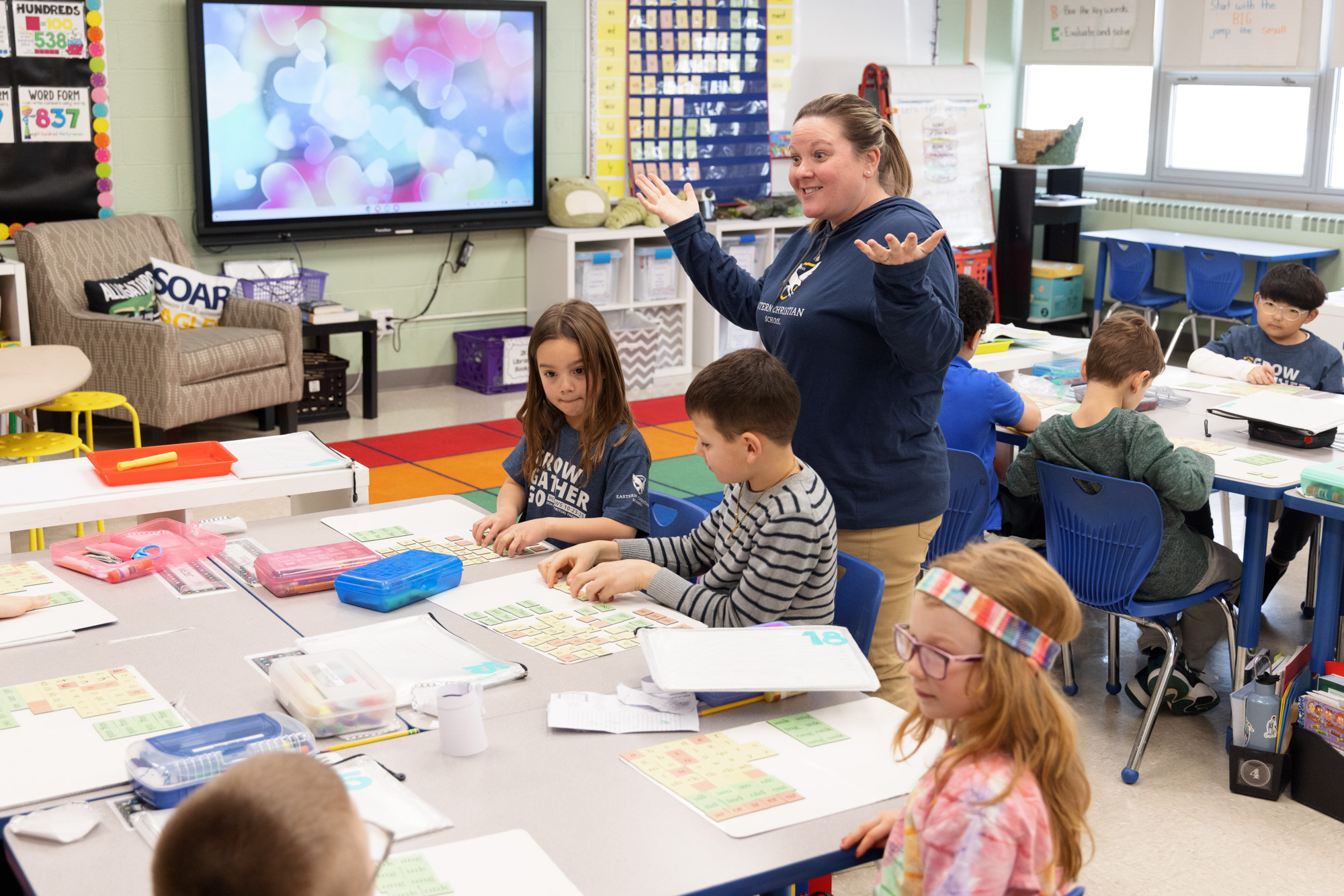
Communicate
Share ideas and listen to others.

Collaborate
Work together using God-given strengths.
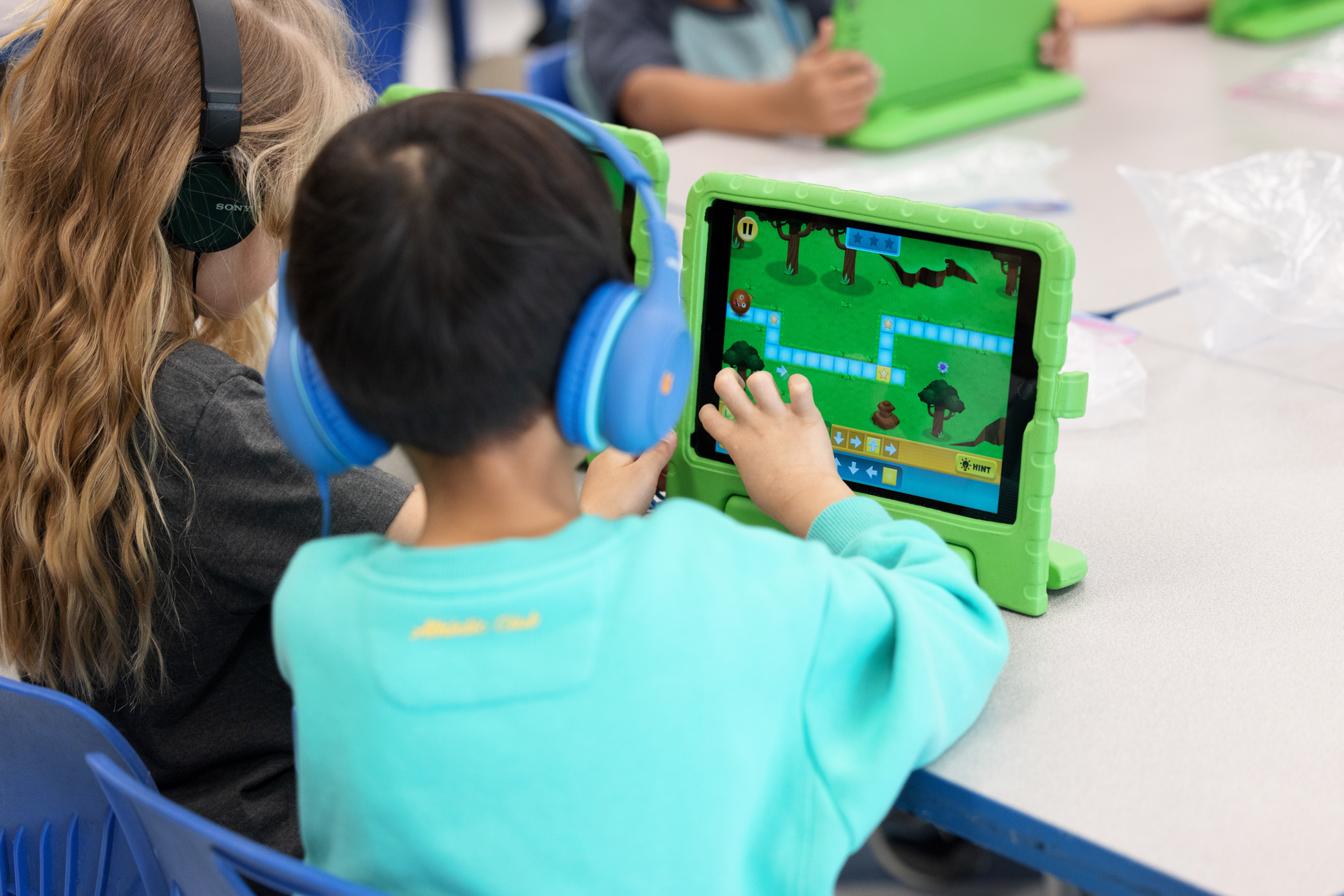
Think Critically
Ask questions and solve problems.
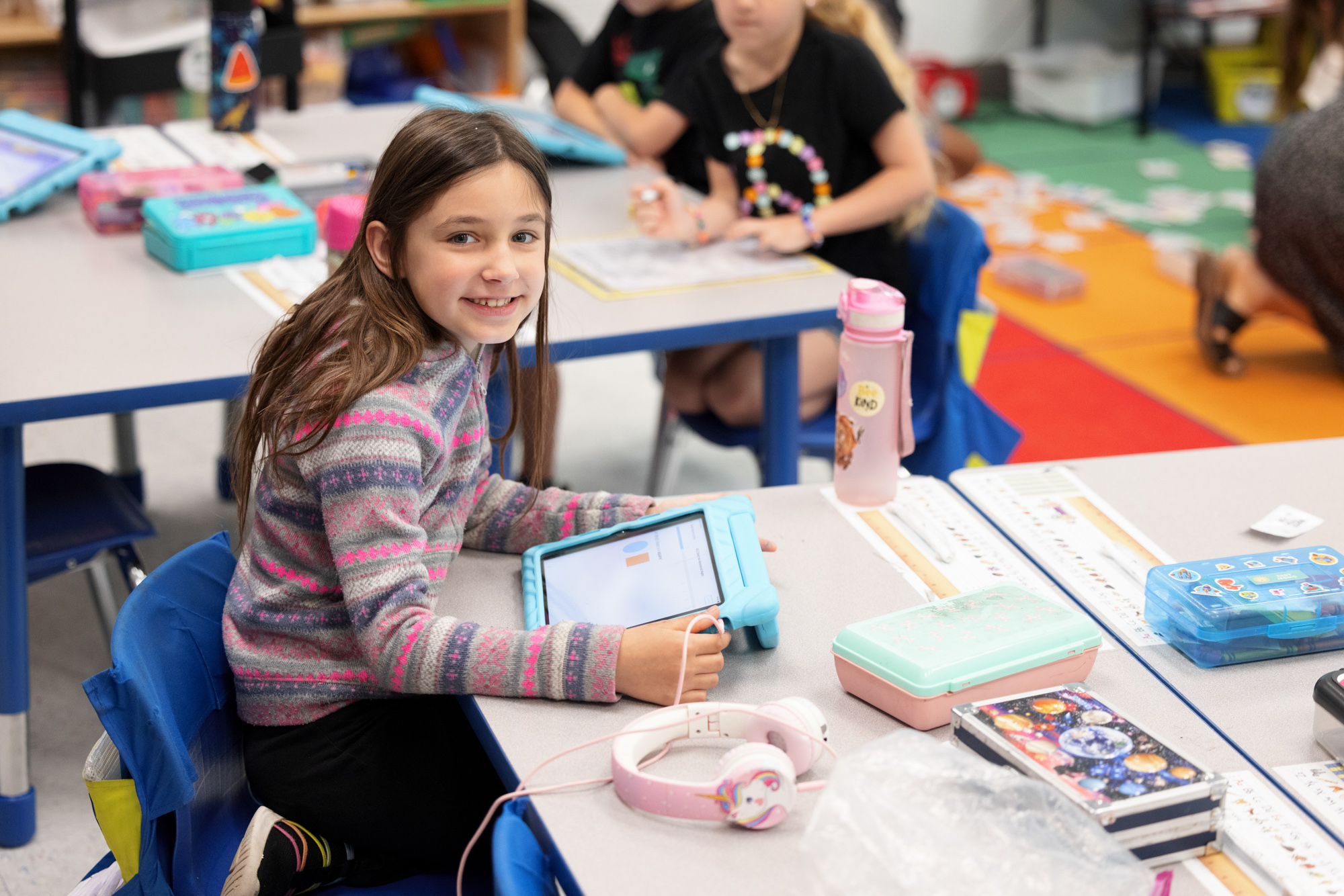
Be Creative
Develop innovative solutions for real-world challenges.
Technology Tools & Resources
- Mystery Science – Hands-on science and engineering lessons.
- Code.org – Interactive coding curriculum.
Technology & Computer Literacy in Middle School (Grades 6-8)
Empowering Future Innovators in a Christ-Centered Digital World
Coding & Programming
- Learn block-based and text-based coding.
- Master Python fundamentals to prepare for high school computer science.
- Develop problem-solving techniques and debugging skills.
Web Design & Networks
- Learn how websites are structured and built. Explore internet safety and ethical digital citizenship.
Game Design & Interactive Projects
- Use programming logic to create interactive experiences.
- Apply creativity to build engaging digital content.
Digital Citizenship & Ethical Technology Use
- Learn how to navigate online spaces safely and responsibly.
- Become critical consumers of digital content.
- Discuss the impact of technology on faith and society.
Innovative Learning with CodeHS:
Students engage with CodeHS, an interactive platform that provides hands-on programming exercises, helping them develop skills in:
- Computational Thinking
- Python & Web Development
- Game & App Development
- Real-World Problem-Solving
By the end of middle school, students have a strong foundation in coding, technology ethics, and critical thinking, preparing them for advanced coursework in high school. Is your student interested in technology? Through our rotating, after school clubs, students have the opportunity to begin learning 3D design and create their own project using our 3D printers.
Technology Opportunities in High School (Grades 9-12)
Preparing Students for College, Careers, and Beyond
We offer career-oriented courses that provide both technical proficiency and real-world application of technology.
High School Technology Course Electives
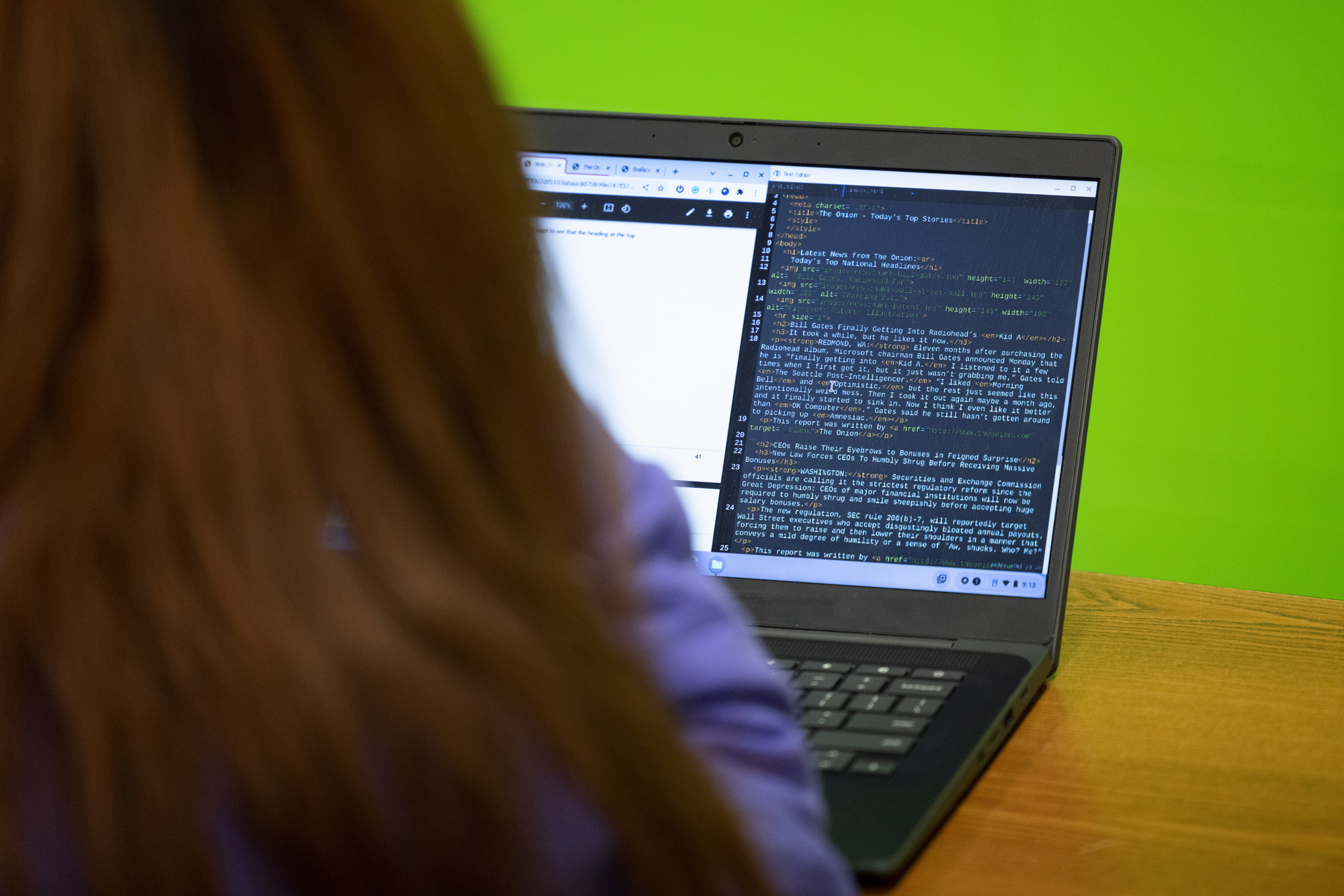
Computer Coding
Learn Python programming to develop problem-solving skills.
Prepare for advanced computer science and software development.

Web & App Development
Master HTML, CSS, and PHP for front-end and back-end development.
Learn app development tools for creating smartphone applications.

Graphic Design
Develop digital art skills using Adobe Illustrator, Photoshop, and InDesign.
Create professional designs for print, web, and media.

Design Technology & 3D Printing
Explore computer-aided drafting, modeling, and construction techniques.
Use 3D printing for rapid prototyping, relevant to engineering and architecture.

Video Production
Learn cinematography, editing, and digital storytelling.
Gain hands-on experience in media production and broadcasting.
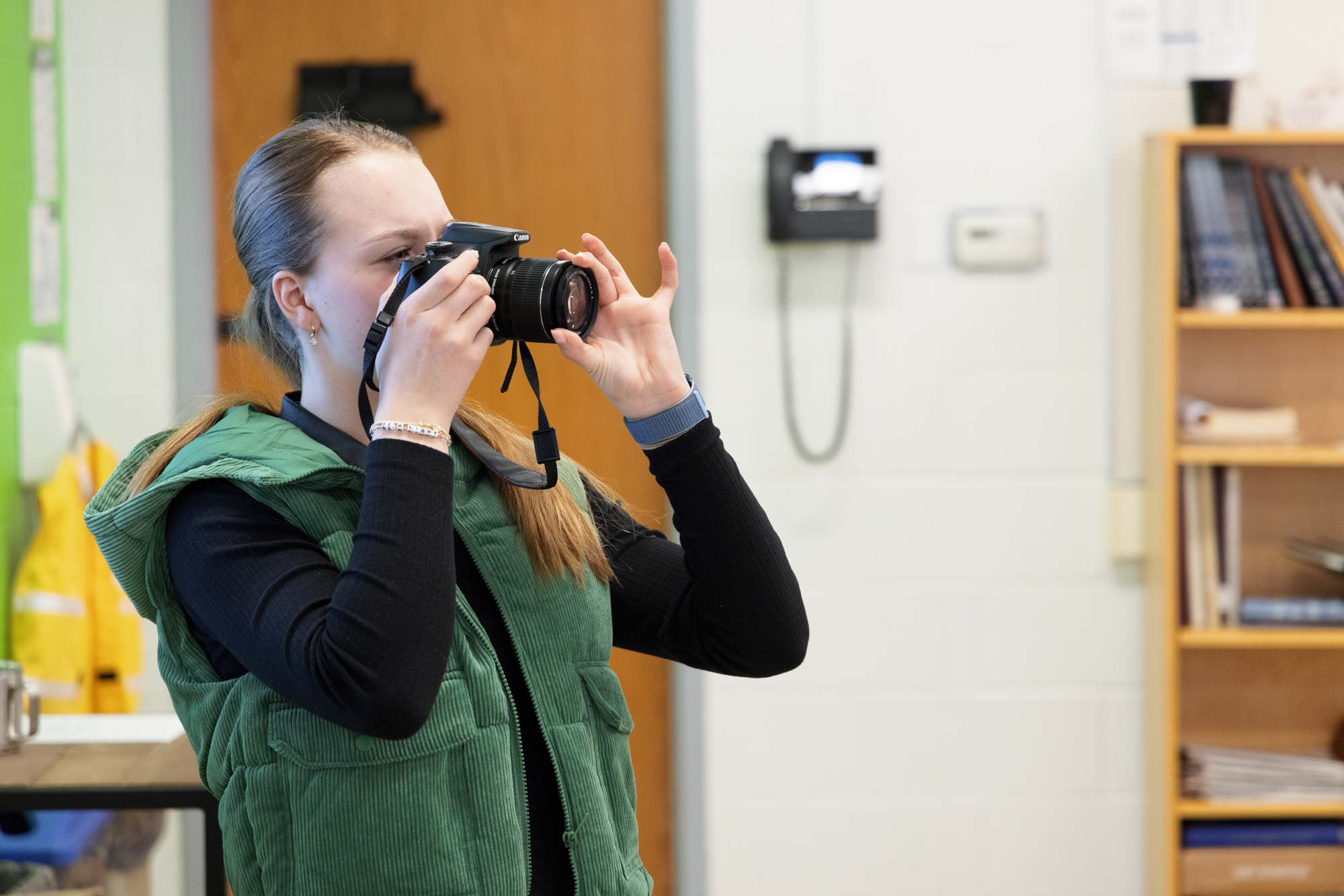
Photography
Capture a technical and theoretical understanding of taking photos
Using mirrorless cameras, lighting and the Adobe suite you’ll create masterpieces

Robotics
Build and program VEX robots to complete real-world challenges.
Apply the engineering design process to robotics competitions.
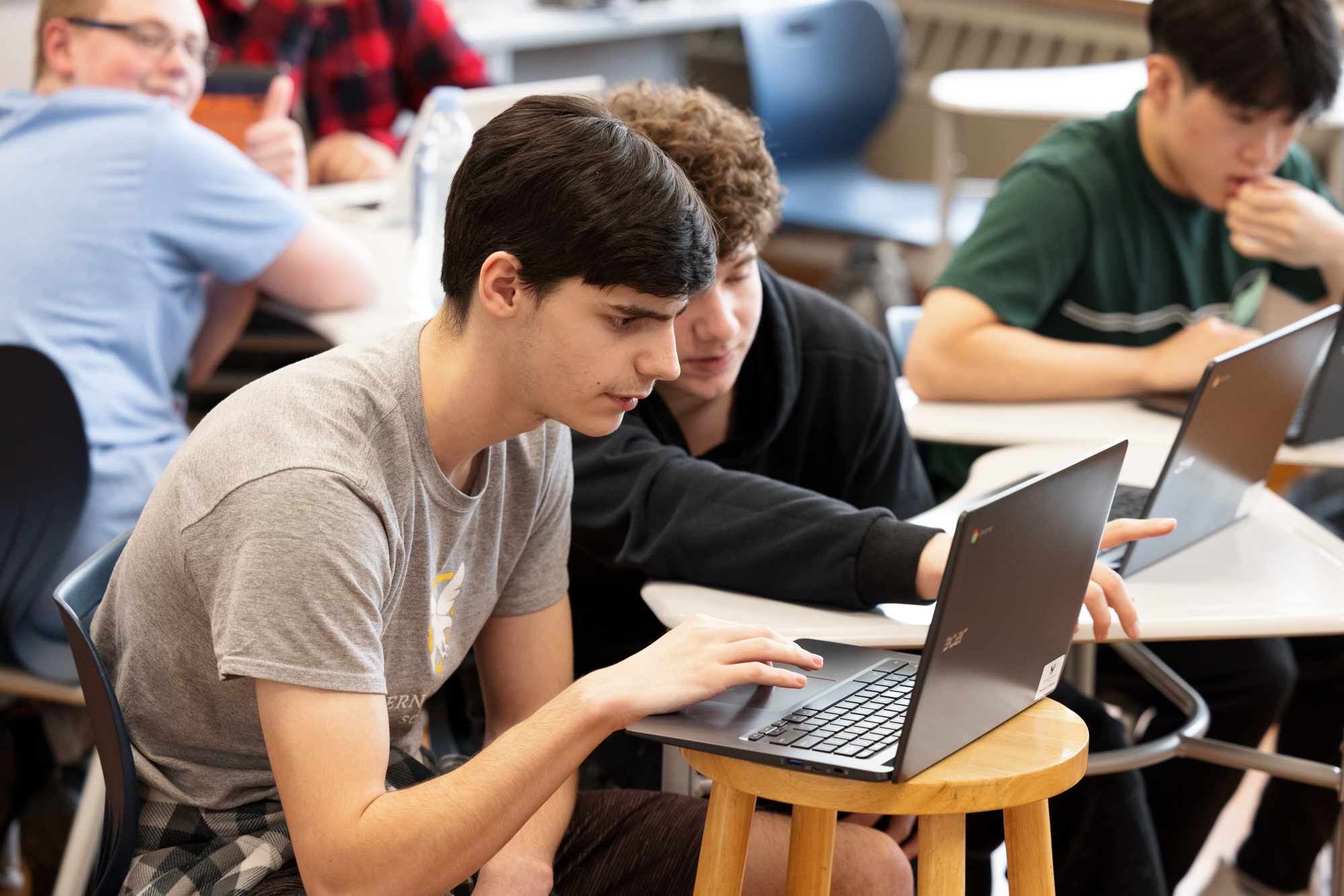
Advanced Topics in Technology
Individual projects in coding, 3D printing, app development, video production, and more.
Whatever your specific technology interest, explore it with a faculty advisor!
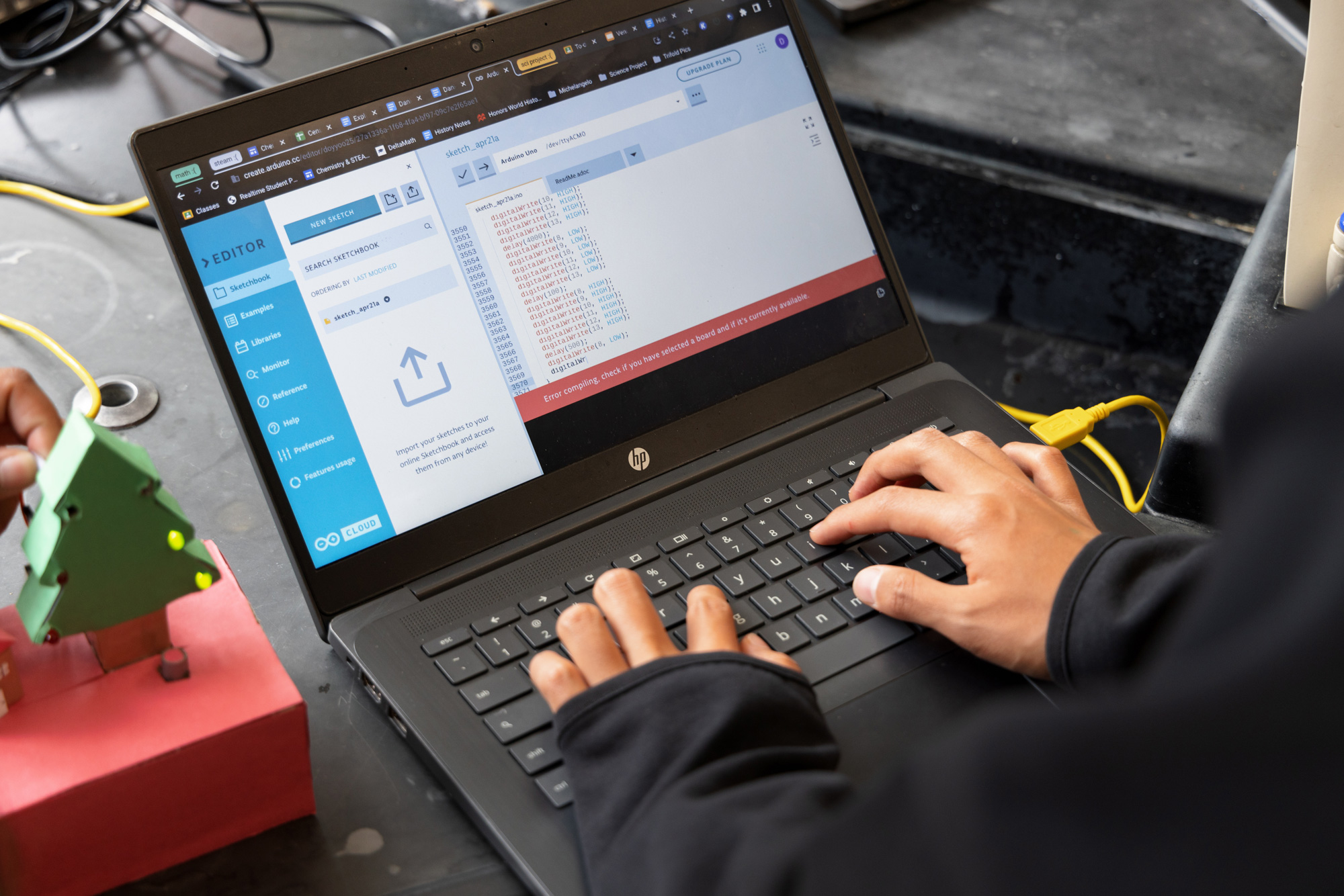
Advanced Computer Coding
Think critically and problem solve using Java while mastering computing principles.
Create a strong base for pursuing advanced computer science career opportunities.
High School Technology Clubs & Activities
In addition to our technology electives, students may participate in additional technology-focused clubs and activities.
- Robotics club
- Digital content creators club
- Chapel A/V tech team
- Theater A/V tech team
- Daily video announcements
- Marketing & advertising
- Rocketry
- Film discussion
Real-World Applications of Technology
At Eastern Christian School, we provide students with hands-on experiences that mirror real-world careers.
- Engineering & Robotics: Compete in robotics challenges and engineering projects.
- Media & Broadcasting: Run sound, visuals and lighting for chapel worship bands and theater productions or participate in student-run daily video announcements.
- Entrepreneurship: Use technology to design, create, and develop real-world solutions.
- Game & App Development: Gain experience in developing digital applications.
- Creative Arts & Digital Design: Work on professional-quality photography, filmmaking, and graphic design projects.
Faith-Integrated Technology Education
We incorporate faith into our technology curriculum, encouraging students to:
- Consider the ethical implications of technological advancements.
- Use their skills to serve others and impact society positively.
- Be faithful and responsible digital citizens in today’s world.
By blending rigorous academics, hands-on learning, and faith-based ethics, students become innovative leaders in a constantly evolving digital landscape.
Learn more about EC’s Christ-centered education.
Student Devices
1:1 devices and age appropriate access
- Students in kindergarten – grade 1 use classroom iPad sets for learning centers.
- Students in grades 2-5 have individual Chromebooks to use in class and on campus.
- Students in grades 6-12 are issued Chromebooks which they are encouraged to use at school and bring home.
Student safety is a key concern and we are happy to utilize an industry-leading student safety platform to ensure robust network security. The system filters online content, monitors classroom technology usage, and tracks student wellness, prioritizing both safety and responsible digital engagement.





